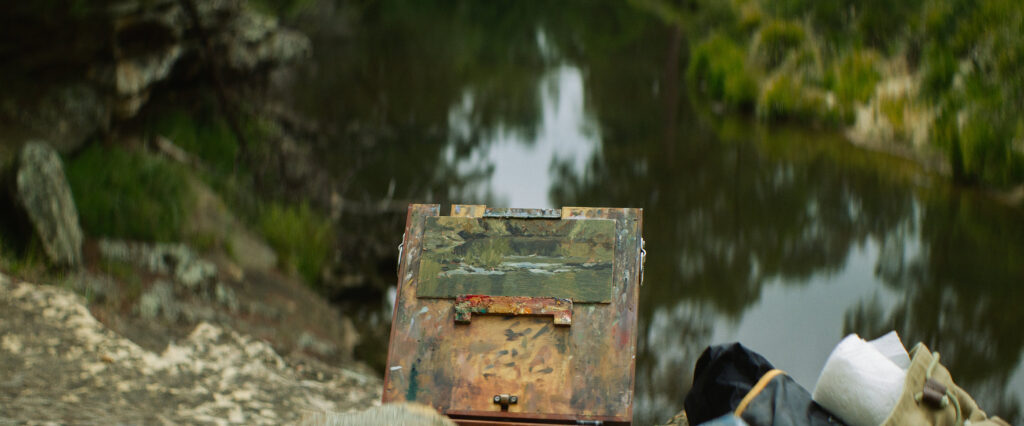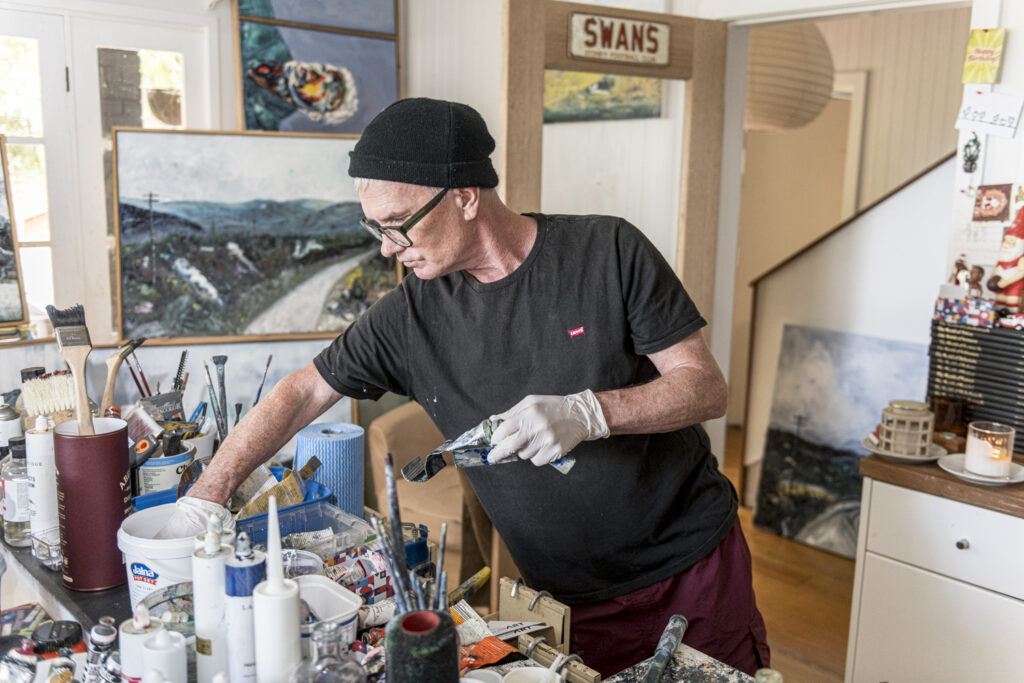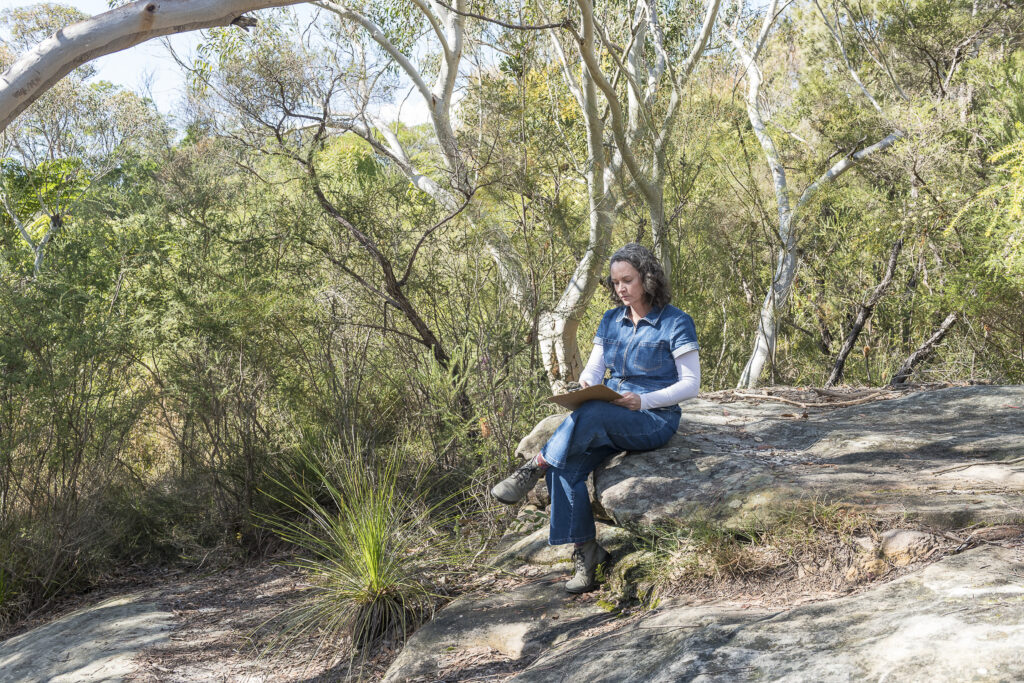Dirty Jane
Words: Michael Sharp
Photography: Ashley Mackevicius
When she was six years old, Jane Crowley started her first business – selling cow manure.
“At the back of our house we had this huge paddock full of Hereford cattle,” she recalls. “I would take our wheelbarrow and go among the herd and pick up all the manure. I would bag it up and sell it to the shop owners in the village for fertiliser at $2 a bag. That was my pocket money.
“No one told me to do it. I just thought: ‘There is a resource here and there are customers there and I can connect the two.’”
One year later, seven-year-old Jane was helping her father in the family’s antique shop in the village of Hall, near Canberra.
“Dad would be out the back sorting through the latest load and it was my job to sit in the office and answer the phone. I got paid $10 a day or I could choose something small from the shop. I started collecting convict bricks – which is the most bizarre thing for a seven-year-old to start collecting – and coffee cups, because I could afford them.”
Business was in Jane’s blood and the lessons learned at this early age were clear.
“I was being taught the value of money and that if you work hard you can create opportunities for yourself.”
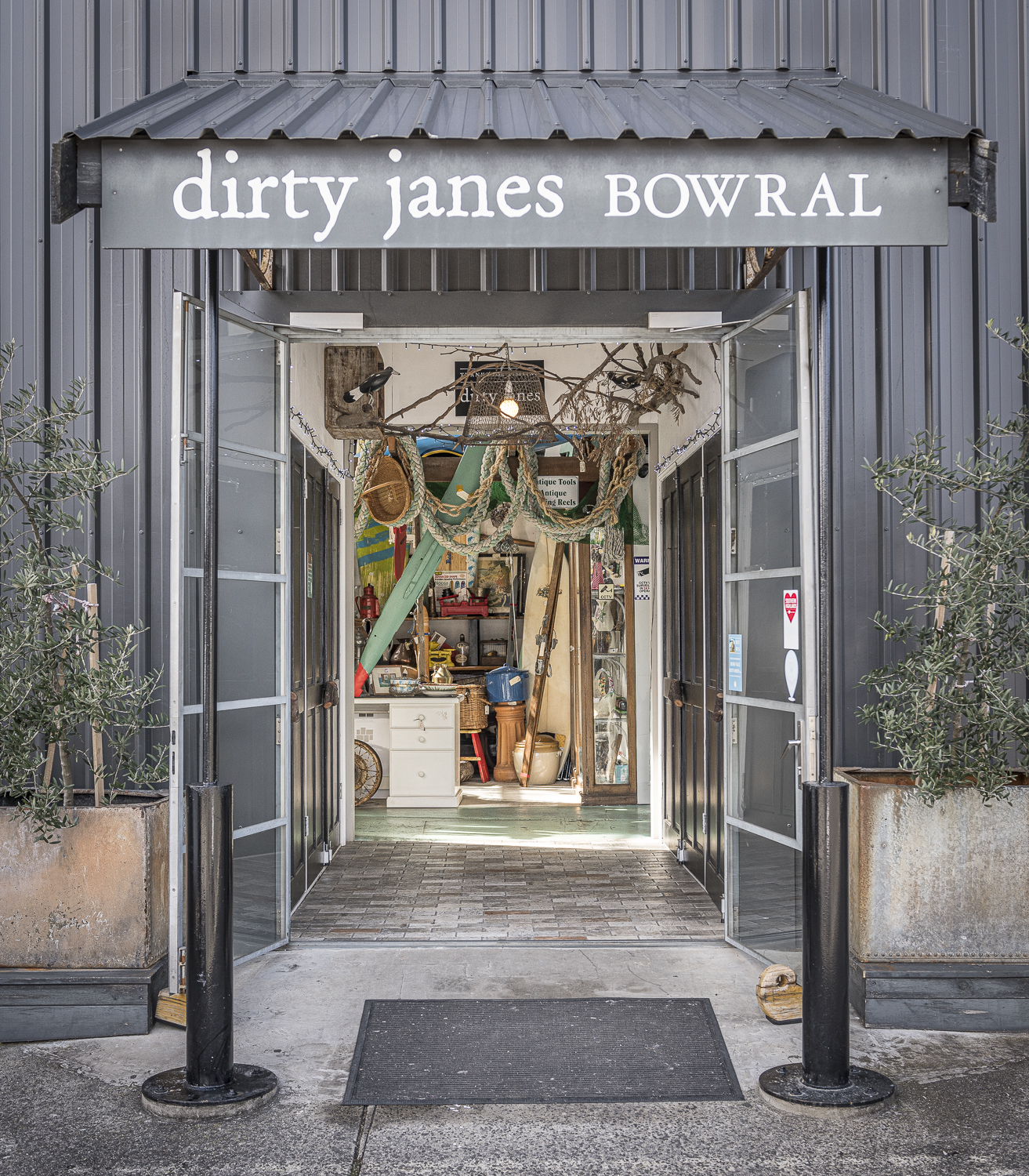
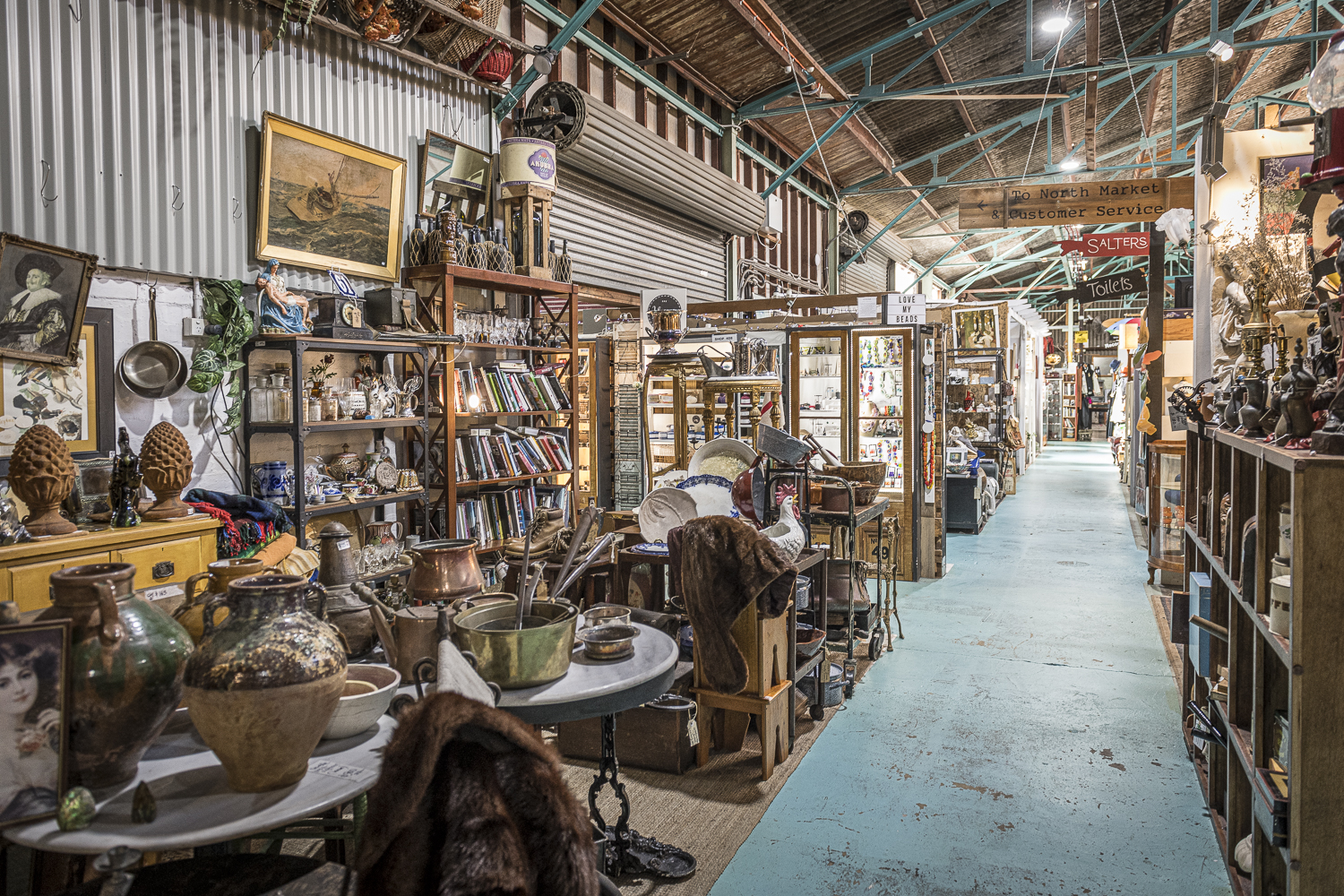
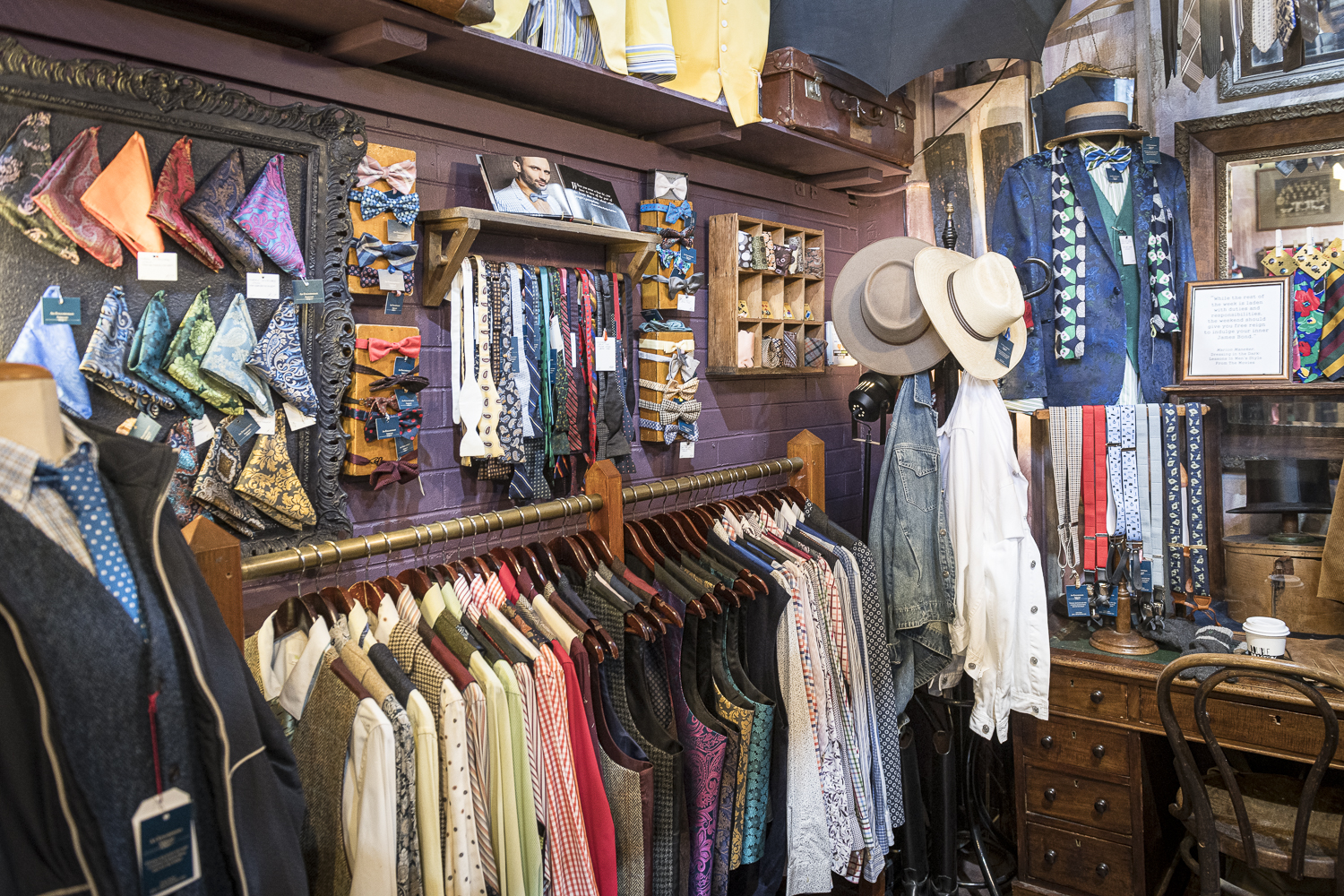
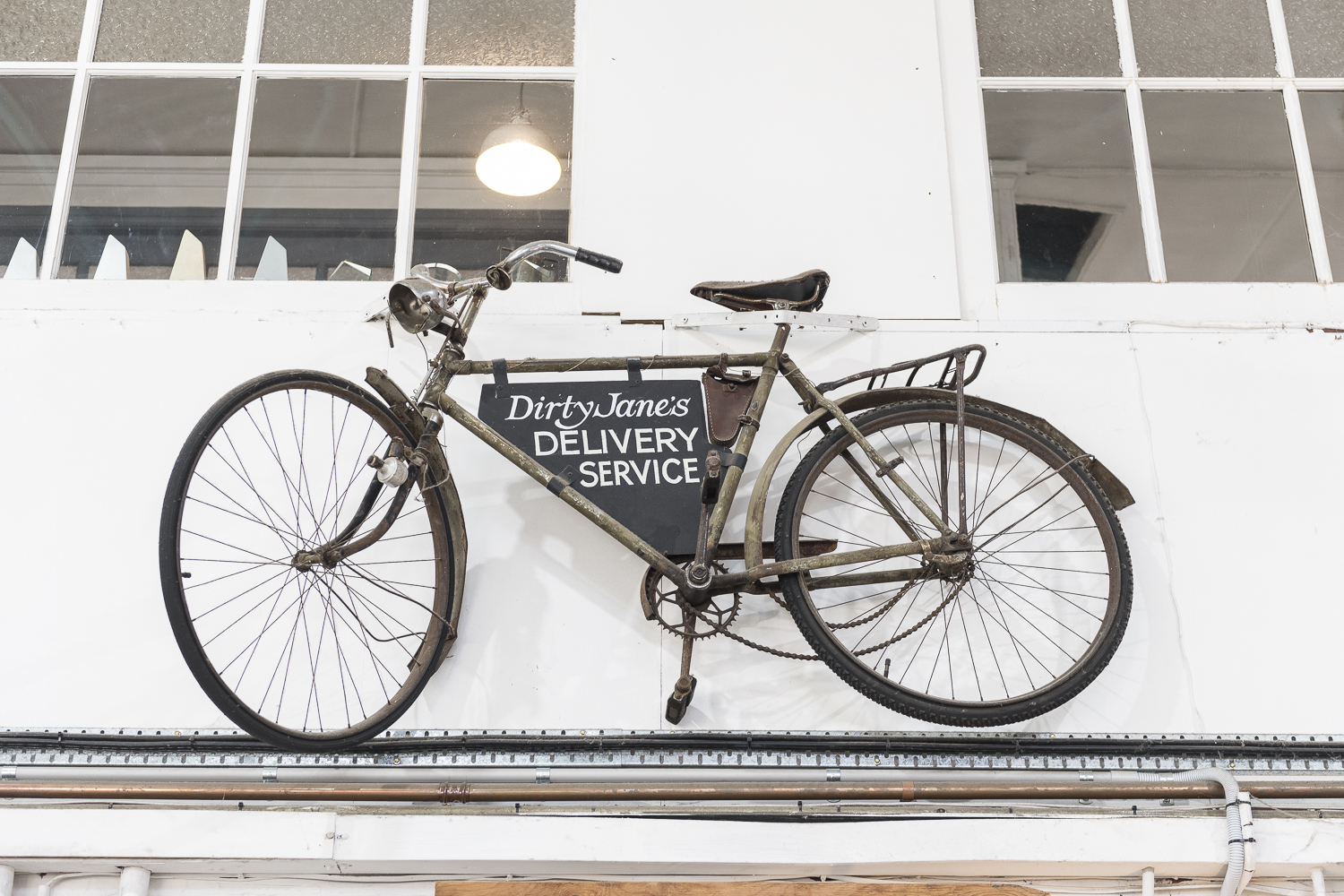
Jane was born in Wagga Wagga, where her energetic and entrepreneurial father ran an antiques business known as The Junque Shop. Athol Salter sourced his stock by travelling around the countryside, buying bargains at clearance sales and auctions. He had grown up in regional Victoria and, after excelling at David Jones’ Young Executive course, opened a shop selling curtains. He placed antique furniture in the shop to add ambience and soon found the furniture sold better than the curtains.
“That was the turning point and Athol decided he wanted to sell antiques,” explains Jane.
Following a suggestion from a friend, Athol decided to hold an auction in Canberra. “It went off like a frog in a sock and Dad realised he needed to be in that market.”
So Athol Salter opened a new antiques business in the old theatre in Hall, taking his wife Margrett and young family with him.
“We lived not far from the shop,” says Jane. “Mum and Dad were awarded the tender for the historic Ginninderra Village schoolhouse, built in 1883. It sat on about five acres of land and Athol had the idea to turn it into a tourist attraction, like a historic village. It was like a mini-Sovereign Hill.”
Jane fondly remembers her “amazing” childhood, full of adventures.
“We built our own house and there was a paddock with sheep, Joe the goat, a donkey, a pony, chooks and ducks and all these animals would cause chaos. On Saturdays, I would knock on the door of the restaurant and the chef would give me two bits of white bread with a roast potato in the middle of it, dripping butter, and that was my lunch.”
Athol first visited the UK to buy antiques in 1974 and was soon travelling there six times a year, buying from dealers set up in vast warehouses along the Thames.
“He was always thinking outside the square. At that time, lamb exports to England were huge and there were a lot of refrigerated containers coming back to Australia empty. Dad negotiated cheap shipping by packing antiques into what would otherwise have been empty containers.”
Jane enjoyed school and all the opportunities it offered her. She went to a small primary school in the Canberra suburb of Lyneham and when her older brother was sent off to high school, she insisted she should also go to boarding school. From the age of nine she was a boarder, first at Gib Gate and then at Frensham, both in Mittagong. After school, she completed a Bachelor of Arts degree at University of Canberra. The primary focus was Communications but she “tacked on” law subjects as well as marketing and public relations. These additional courses would prove invaluable in her future career.
Jane loved studying Drama at school and dreamed of working in theatre, so after University she travelled to Melbourne “and just knocked on doors”. She found some unpaid work experience at Victorian Opera but her dream didn’t pan out as expected and she moved to Sydney to work for the MindBodySpirit Festival and then a series of office jobs.
At the same time, she was organising garage sales and continuing to liaise with her father about antiques. She had met her future husband, Bob Crowley, and “he was the one who said I was mad to work in office jobs when I could be working with my Dad, doing what I love”.
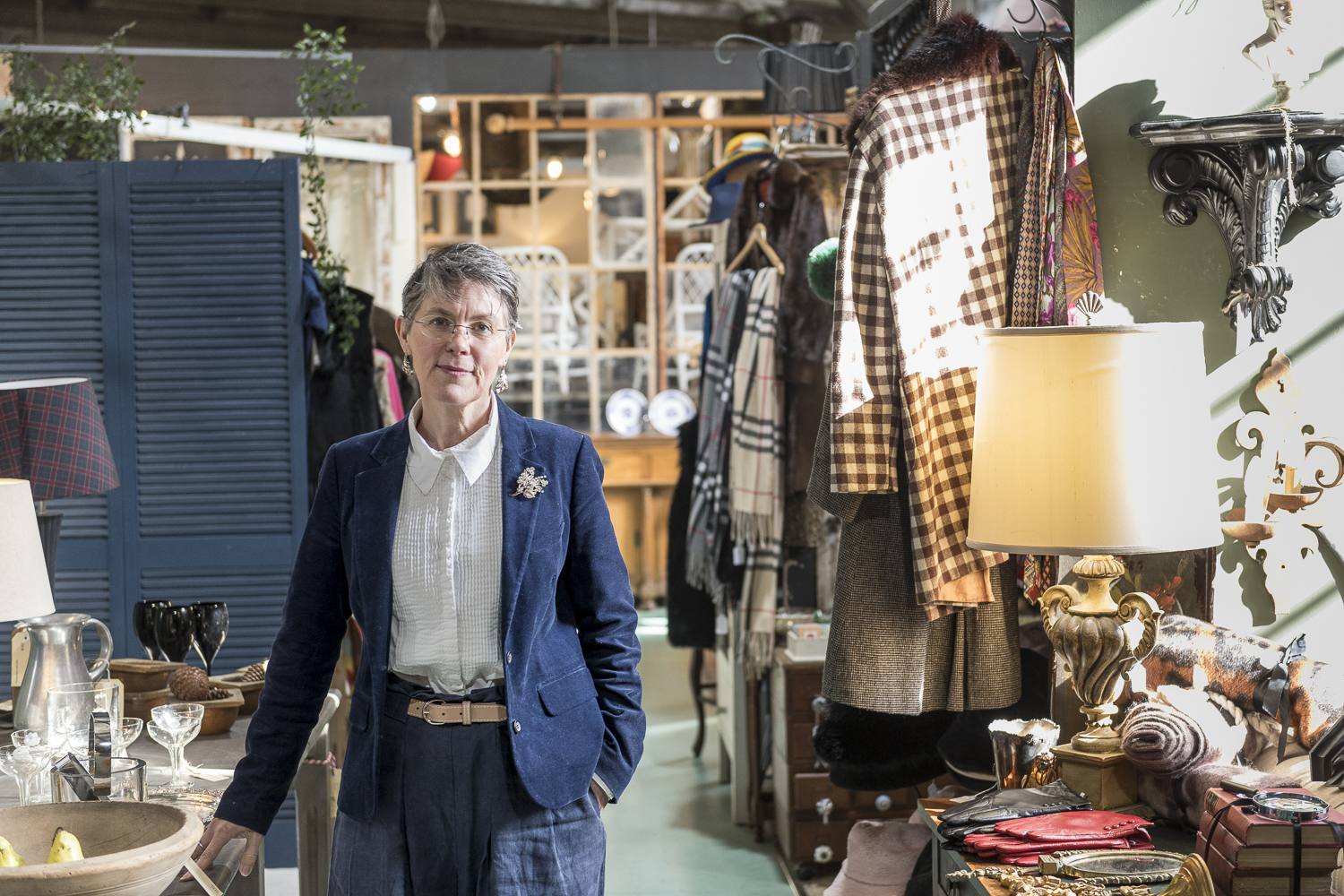
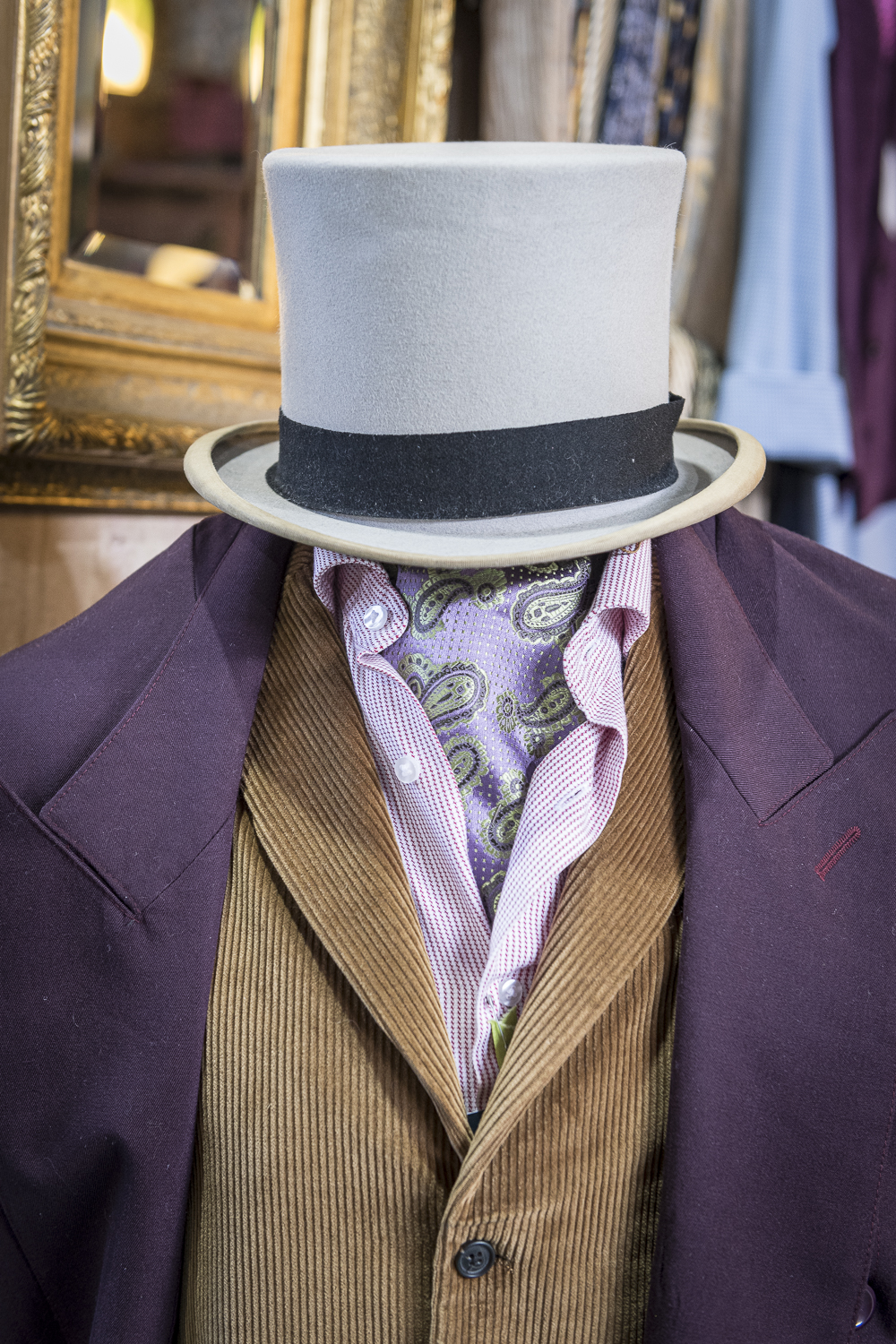
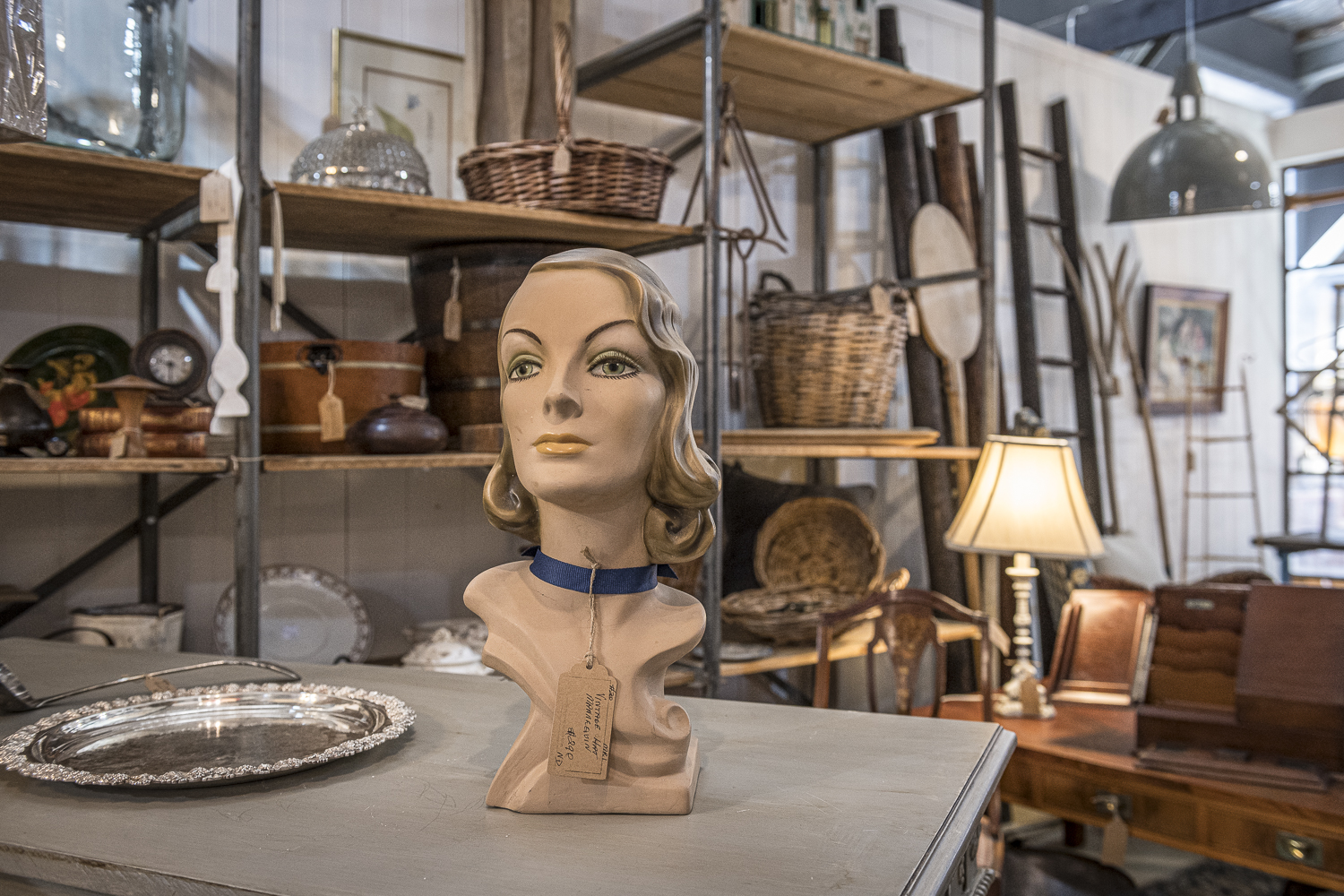
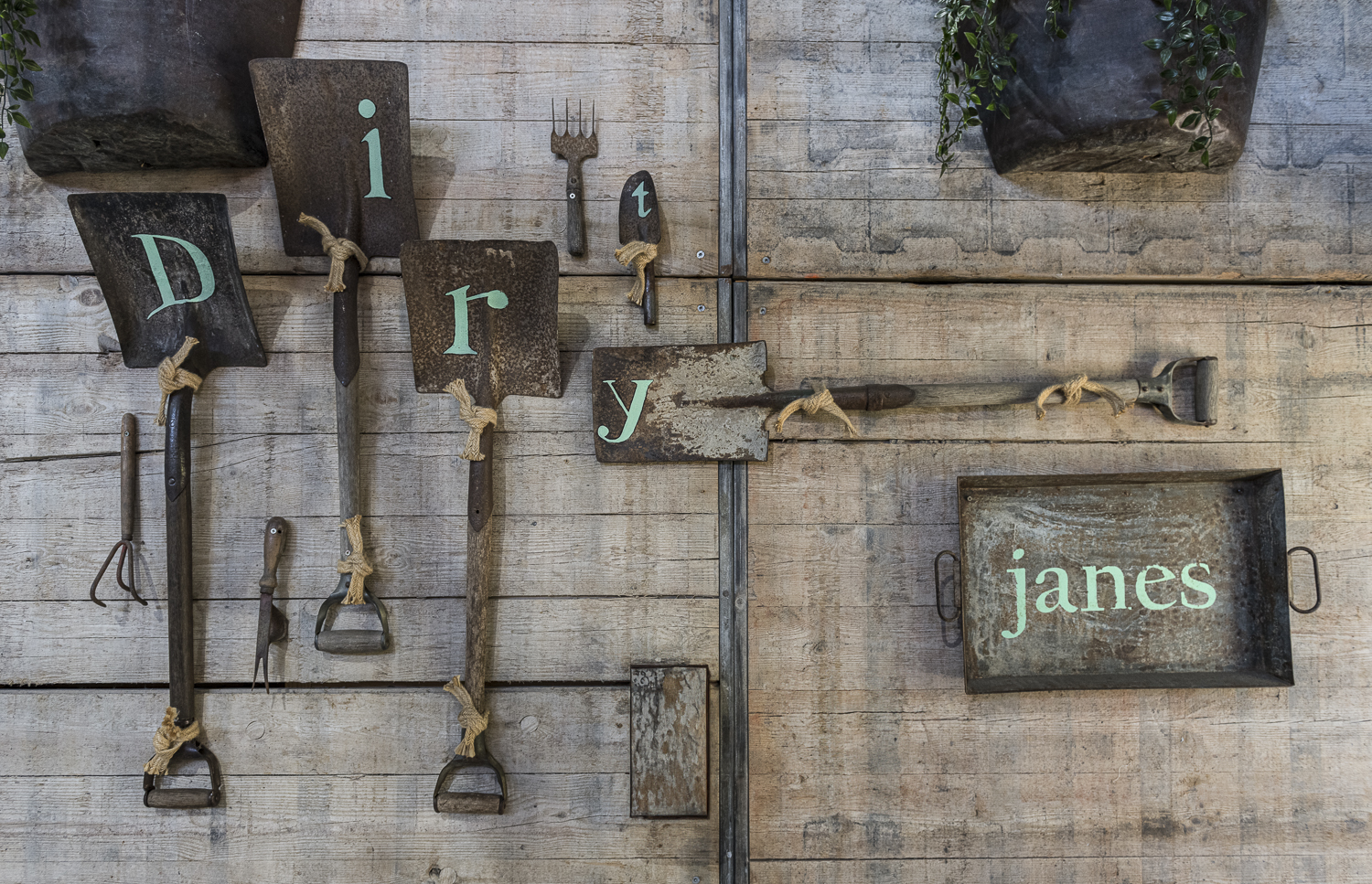
In 2000, Bob and Jane decided to spend time in the United Kingdom and this experience confirmed her passion for the antiques business.
“Athol said to me: ‘While you’re over there why don’t you buy a container, fill it with furniture and send it out.’ It was like this light turned on. I bought myself an old British Gas van, a Ford, called it Daisy and drove to auctions all around the UK. The learning curve was off the charts. I would store the furniture in a little stable at the back of the house we were renting in the village of Falfield and when I had enough to fill a container I would send it to Athol.”
After three years in the UK, Bob and Jane – now with two young children – were ready to come home. They moved into an old house that Athol was renovating in The Southern Highlands and Jane started working with her father. Athol had sold Antiques Hall 14 years earlier and was now operating The Shed in Mittagong.
Three years later, in 2008, Athol and Jane decided to make a significant change.
“The Shed was freezing in winter and like an oven in summer. I believed we had reached our potential, so when the front shop at the Acre became available we took it. Back then it was the old Electricity Commission building. The zoning had recently been changed from industrial to retail and Athol saw the opportunity to open an antiques market. The site was a complete mess, but we negotiated a rent. I think the real estate agent thought we were insane.”
Dirty Janes opened with just eight dealers but “word got out quickly and six months later the hall was full”.
Why did they call their new business Dirty Janes?
“It really has nothing to do with me,” Jane says convincingly. “We wanted a name that was easy to remember and also had a back story. That’s when we learned about this convict girl.”
Jane Dumphrey was born in Northern Ireland, the daughter of a “rag and bone” man. She started working for him when she was five years old. Both her parents had died by the time she turned 15 and she moved to a poorhouse in Belfast. She found a good job working as a maid but her boyfriend convinced her to steal some silver and Dumphrey was transported to Sydney in 1840. After impressing the captain and his wife on the journey, Jane was referred to the captain’s cousin, Tom Gully, who owned the general store in Gundagai. When she arrived covered in dust and mud, her new boss called her “Dirty Jane”. The convict girl worked hard and when Gully died decades later he left the business to her.
For Athol and Jane, community is at the core of Dirty Janes.
“Having a shop in the main street of any town is not only expensive, it can be really lonely. All the decisions fall to you and you have to be an expert at everything. We wanted to provide support so people could look to us to manage the back end of the business while they focus on the creative stuff. I think that has become our North Star and our stall holders really appreciate it. We do the marketing, sell their stock, arrange delivery and they know they will be paid at the end of the week.”
Dirty Janes started well but the building was under a demolition order which meant they could be evicted with six months’ notice. After five years, the Government decided to sell the building and a developer was rumoured to have plans to turn the site into a mall. Jane and Bob quickly put together a business case and borrowed as much money as they could. They lodged their offer, together with a bank cheque for a 10% deposit, just before the 5pm Friday deadline.
“I still remember the real estate agent calling me at about 5.30pm telling me that we’d got it. It was fantastic – but we now had this enormous mortgage. We ran the business on a shoestring. Athol would bring in the dealers and I was the accountant, the marketer, the office manager – I was doing absolutely everything. And I had three kids under the age of six!”
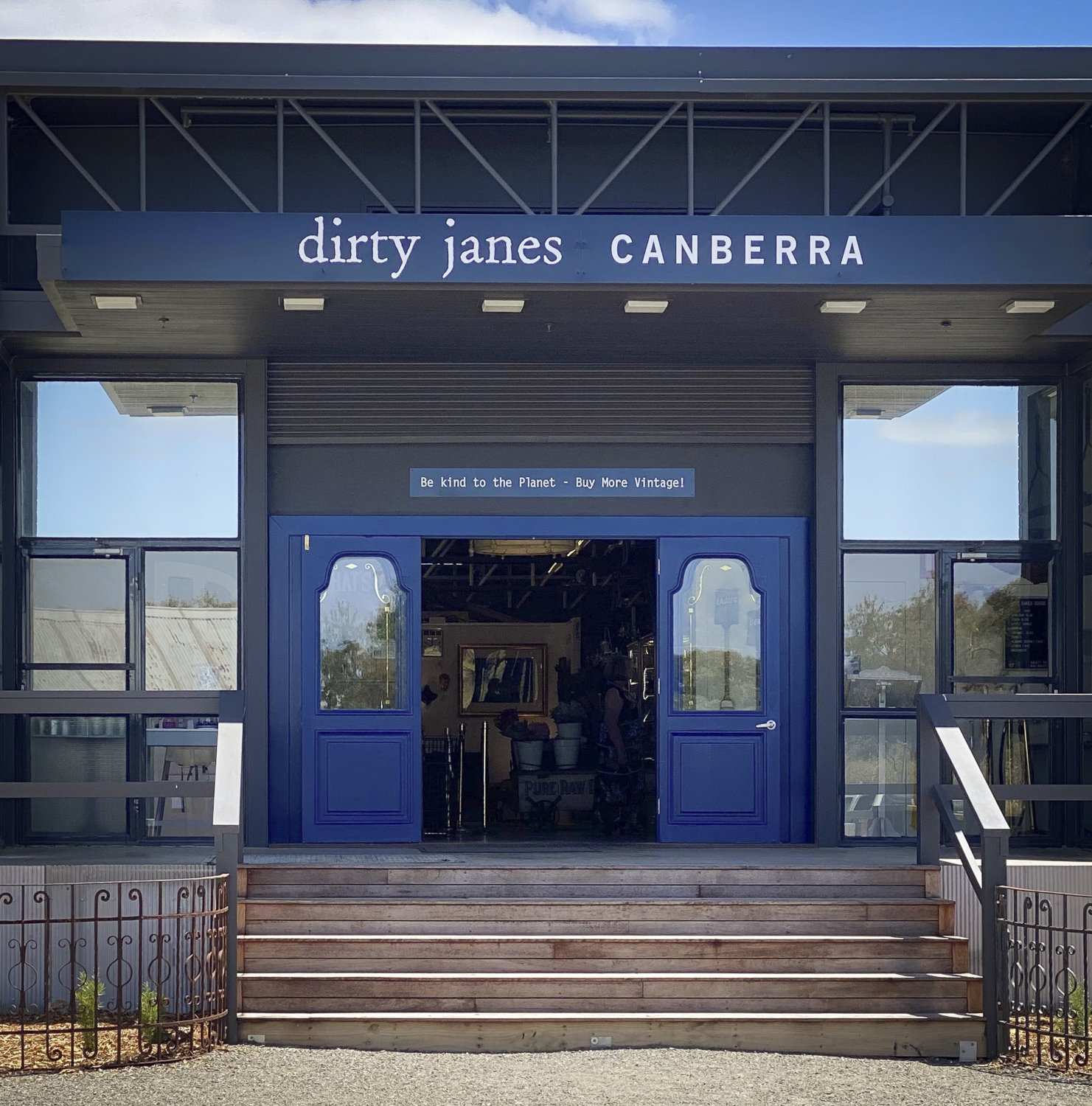
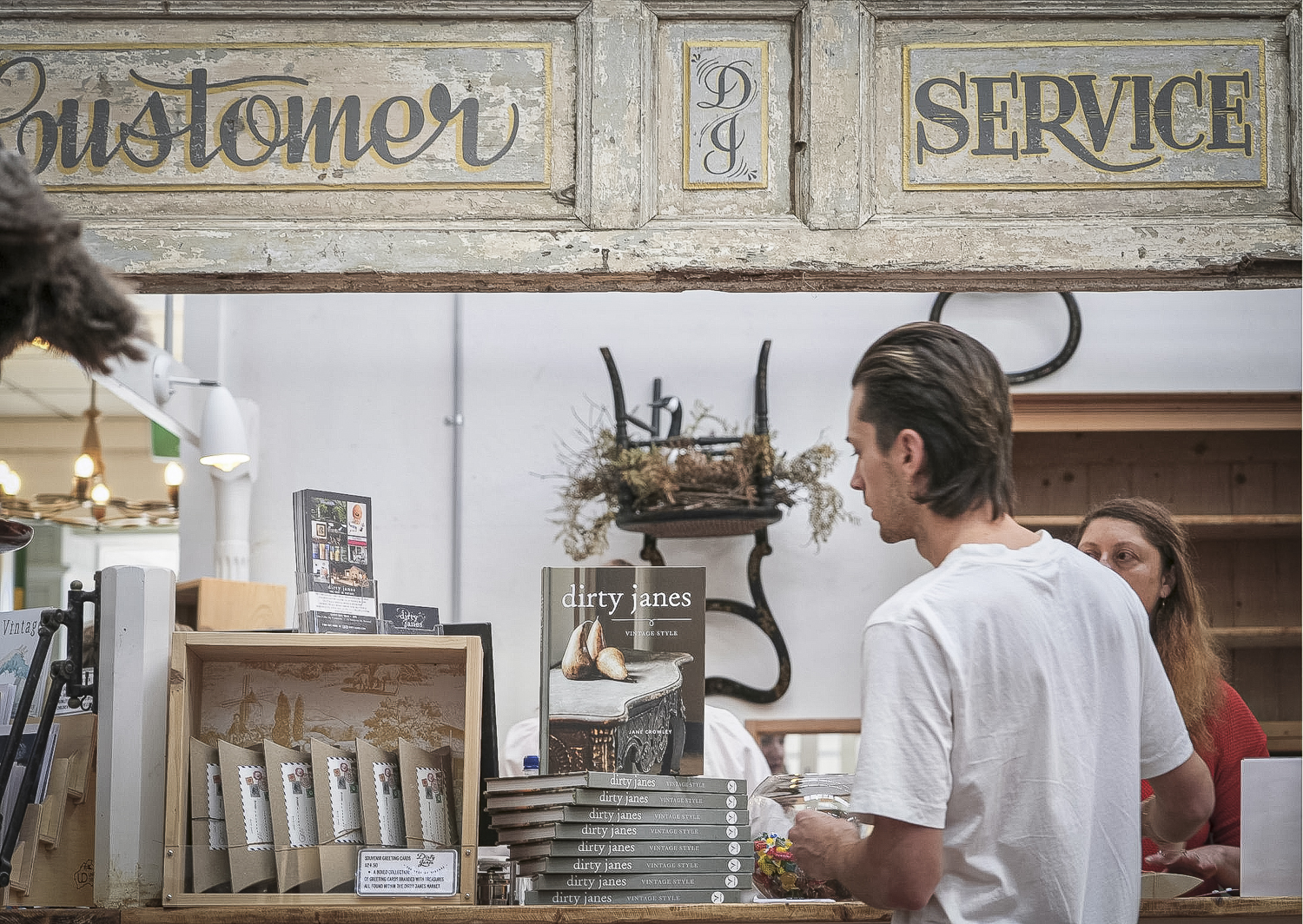
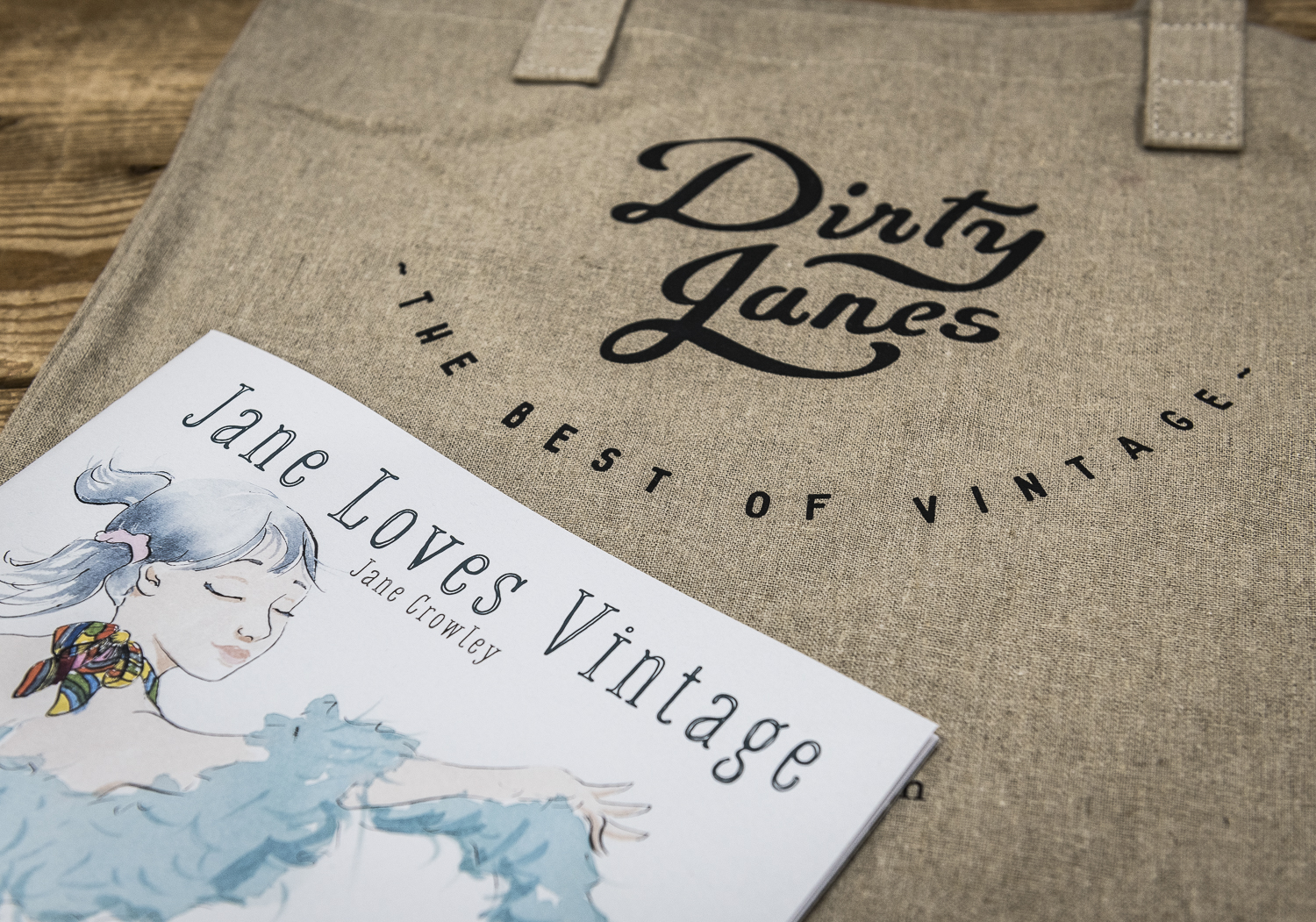
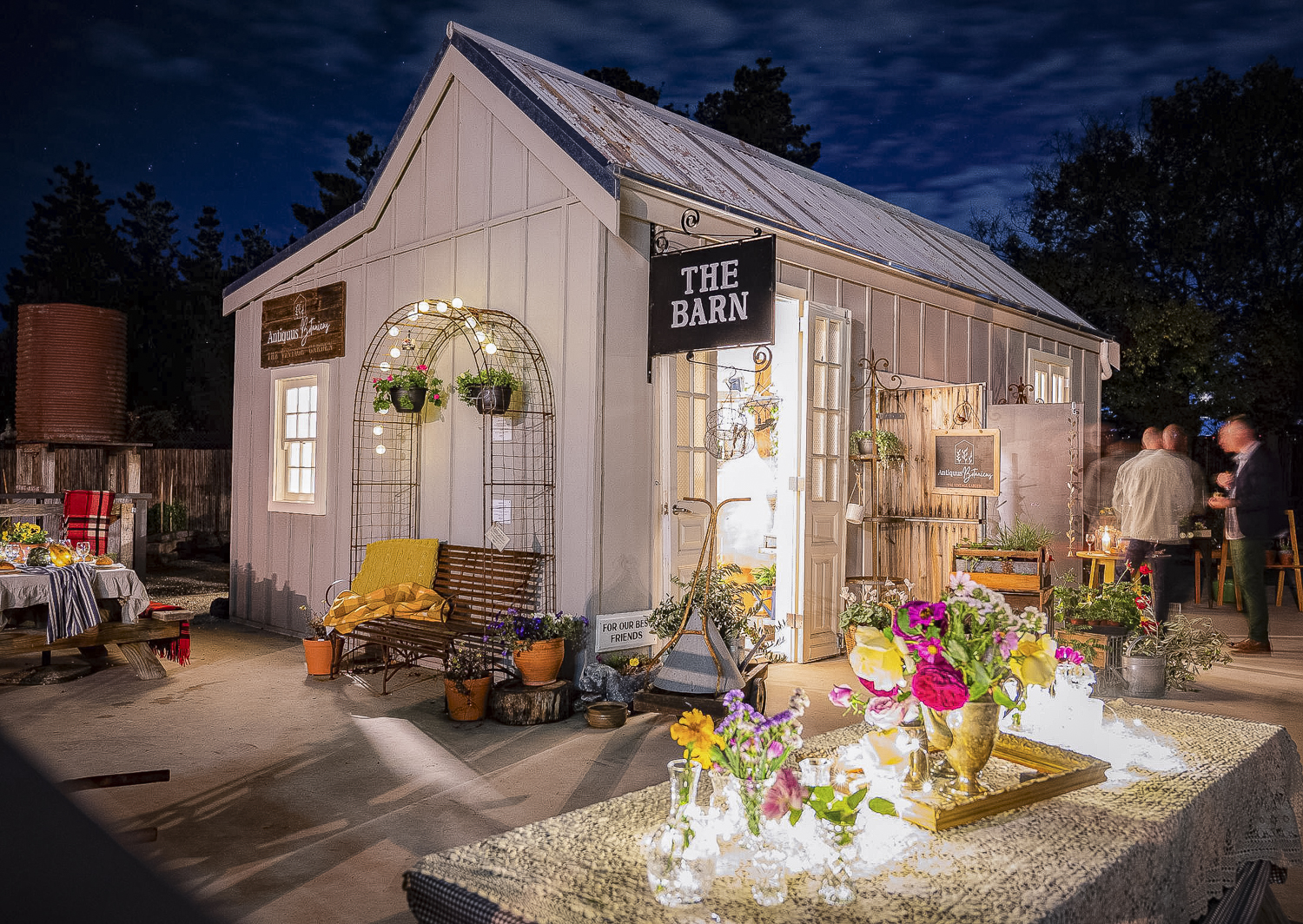
By 2016, Dirty Janes was a Southern Highlands icon with ninety stallholders. In 2018, Athol and Jane decided to expand to Canberra. They spent most of 2019 putting the plans together.
“In January 2020 we went to Canberra for three months to do the final renovations. We opened on 20 March with 90 stall holders – and the country went into lockdown on 25 March. The timing was just crap.
“We thought at first, delusionally, that we could carry on. But we couldn’t, of course, and we closed Canberra. Then we closed Bowral. We had to lay off about 20 staff but we told the stall holders we wouldn’t charge rent while we were closed. So our income dried up, literally overnight. I went home and just wanted to dig a hole in the garden and bury myself. I was cross with myself because I felt I should have seen it coming and I was stumbling, like so many of us were.”
Dirty Janes reopened three months later “and trade took off, although we still had to deal with significant challenges like social distancing”.
When the second lockdown was implemented, Jane and her team were much better prepared. They had improved their social media skills and enhanced their online presence while also introducing a “click and collect” type service.
They were difficult times, but what about the current economic environment?
“I’ve traded through the GFC, recession and COVID but it is really tough out there at the moment,” Jane says. “People are hurting.
“There is a lot of uncertainty and whenever that happens there is a tendency to save instead of spend. Big purchases are few and far between, but people still want to treat themselves. It’s so important that we provide one of the best experiences you can have in a retail environment. Our staff are trained to interact with our customers, to greet them and, for example, tell them they can bring their dog in. This really reverberates with our customers.”
The tough trading environment highlights the importance of being agile.
“You cannot afford to sit still,” Jane says. “You have to be constantly looking at what is going on in your community, and the broader community, and you have to be innovative.”
This approach is epitomised by the opening of a third Dirty Janes in Orange earlier this year. They now look after about 200 small businesses across three locations and employ about 50 staff.
Jane stresses that each Dirty Janes must have its own character, connecting with its community. She understands the convenience of shopping online but is passionate about the importance of supporting local businesses.
“It’s up to every single person to hold on to the small local businesses in the regions. Franchises are expanding their reach and it’s getting to the point where you drive into a country town and you’re not really sure where you are – but you can see that franchise and the other franchise and the other one.
“We have to hold on to the uniqueness of each regional area because that is the community, that’s where you anchor yourself. If we lose that, we’re losing community and that’s a really sad prospect.”
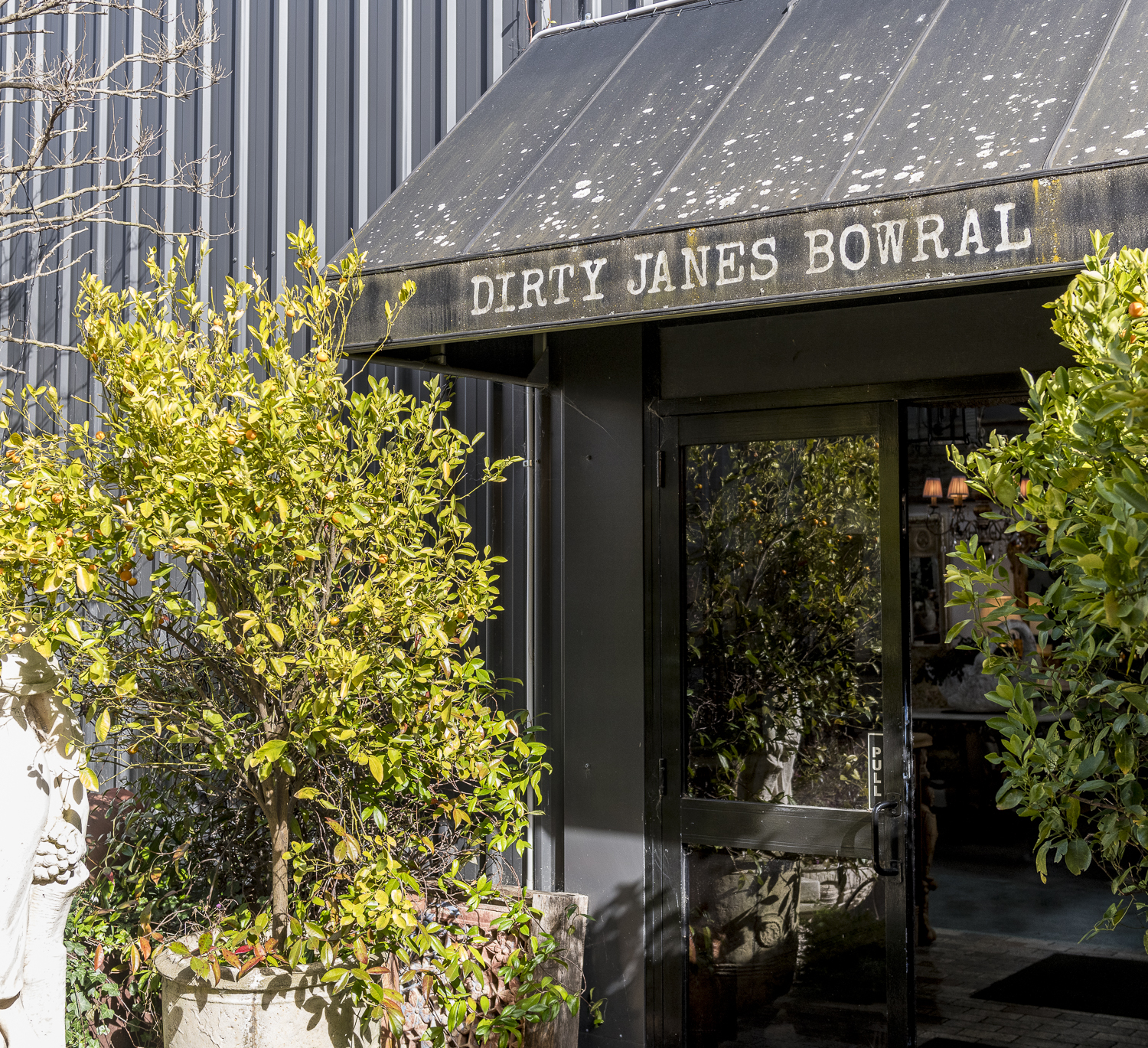

Michael Sharp
Michael has been working at Michael Reid Southern Highlands since it opened in March 2022. He has previously worked as a lawyer, journalist and senior practitioner in Australian corporate affairs.
- xxi Pecora Dairy June 2024
- xxx In Conversation: Evan Shipard March 2026
- XXIX David King December 2025
- XXVIII Nicola Woodcock August 2025
- xxvii Marlie Draught Horse Stud May 2025
- xxvi India Mark February 2025
- xxv Mussett Holdings December 2024
- xxiv Louise Frith October 2024
- xxiii Dirty Jane August 2024
- xxii Melanie Waugh July 2024
- xx Emily Gordon May 2024
- xix Steve Hogwood March 2024
- xviii Julz Beresford February 2024
- xvii Snake Creek Cattle Company November 2023
- xvi Ben Waters September 2023
- xv The Reid Brothers August 2023
- xiv Elizabeth Beaumont July 2023
- xiii The Charlotte Project June 2023
- xii Buddhism in Bundanoon May 2023
- xi Honey Thief April 2023
- x David Ball February 2023
- ix Kate Vella January 2023
- viii The Truffle Couple December 2022
- vii Wombat Man November 2022
- vi Storybook Alpacas September 2022
- v Tamara Dean August 2022
- iv John Sharp July 2022
- iii Amanda Mackevicius June 2022
- ii Denise Faulkner May 2022
- i Joadja Distillery March 2022










